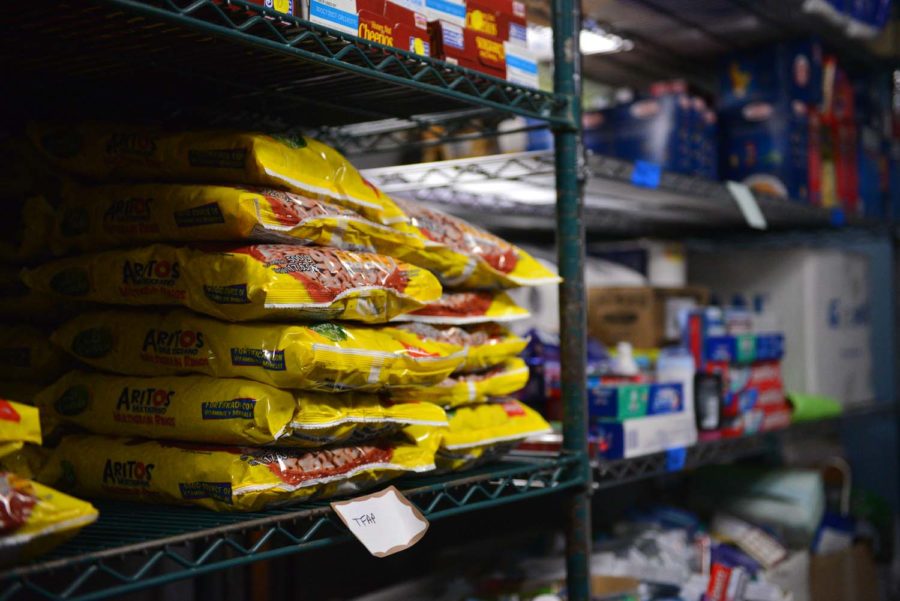Federal food stamp changes could impact Pittsburgh, Pitt students
The USDA recently proposed changes to the Supplemental Nutrition Program that could reduce access to food stamps and similar services.
October 29, 2019
Millions of Americans could be losing access to their source of food if the United States Department of Agriculture goes through with a rule change that tightens the eligibility requirements for food stamps.
The proposal to change the eligibility for the Supplemental Nutrition Assistance Program, more commonly known as food stamps, was released in July by the USDA with the stated intent of ending abuse of the program.
In 2015, more than 160,000 people in Allegheny County received food stamps. If enacted, the rule change would potentially worsen food insecurity as an estimated 2 million households nationwide would lose SNAP benefits and their children would lose access to free lunches at school.
Administered by the USDA, the SNAP program provides eligible low-income households with a monthly budget for food, distributed through a card that can be used as a payment method at grocery stores and other participating food sources.
Currently, the USDA allows people with incomes up to 200% of the poverty level and greater than $3,500 in assets to receive SNAP benefits. However, they are now seeking to change this rule. In a statement issued in July, Agriculture Secretary Sonny Perdue said the change would prevent “abuse” to the system by those who did not need the benefits.
“For too long, this loophole has been used to effectively bypass important eligibility guidelines,” Perdue said in the statement. “We are changing the rules, preventing abuse of a critical safety net system, so those who need food assistance the most are the only ones who receive it.”
If the rule is changed, more than 2 million people in households with children would lose access to their food stamps, according to a study by the Urban Institute. These families would be losing an average monthly benefit of $240 per household. The Advocacy Coordinator for Greater Pittsburgh Community Food Bank, Adam Morgan, expects that this will be detrimental to food security in Pittsburgh and beyond.
“We are already hearing that people do not get enough in a month to make their ends meet,” Morgan said. “It’s going to affect a household’s ability to feed themselves.”
Children from households that receive SNAP benefits are automatically eligible for free school meals. This means that, in addition to losing access to the benefits of food stamps at home, an estimated 500,000 children from households that lose SNAP eligibility would also lose access to free school meals.
Pittsburgh Public Schools is one school district that could be affected by a change in SNAP eligibility requirements. According to Curtistine Walker, the director of food service at PPS, the school district is able to provide free breakfast and lunch to all students who need it, regardless of whether a student individually receives SNAP benefits. However, a school’s ability to provide this service is dependent on the SNAP eligibility of the student population as a whole.
This system is known as the Community Eligibility Provision, an alternative to the typical free lunch program. A school’s eligibility for CEP depends on the percentage of students participating in other specific means-tested programs, such as SNAP and Temporary Assistance for Needy Families, which means that a decrease in food stamp eligibility could lead to certain schools within a district becoming ineligible for CEP.
“The worst case scenario would be that those schools that are not CEP would return to only those students who receive SNAP being eligible for free meals,” Walker said in an email. “All students who do not have free or reduced status would have to pay for their meals. Hello
lunch debt again.”
A 2018 study found that 29% of college students in southwestern Pennsylvania face moderate or high levels of food insecurity. The same study found that 27% of Pitt students reported moderate or high food insecurity.
“College hunger is definitely a problem,” Morgan said. “The past couple of years is when people have really begun to do studies and take notice.”
When it comes to food insecurity among college students, Ciara Stehley, the Pitt Pantry coordinator, emphasized that hunger is not the only food-related issue.
“Food insecurity can take a lot of different forms including irregular eating patterns, like eating one large meal a day in a dining hall or opting for cheap, highly processed foods with minimal nutritional value,” Stehley said in an email. “Not everyone experiencing food insecurity feels hungry all the time.”
Students at Pitt who are facing food insecurity can go to the Pitt Pantry in the basement of Bellefield Presbyterian Church to obtain balanced and nutritious food without restrictions based on SNAP eligibility.
“Eligibility is based solely on income and household size and is a self-certification of need, meaning we do not require proof of income from our clients,” Stehley wrote in an email.
Food insecurity can also be detrimental to academic performance, which is disruptive in a college setting.
”Getting enough of the right types of foods is critical for good health and supports academic and personal success,” Stehley wrote.








